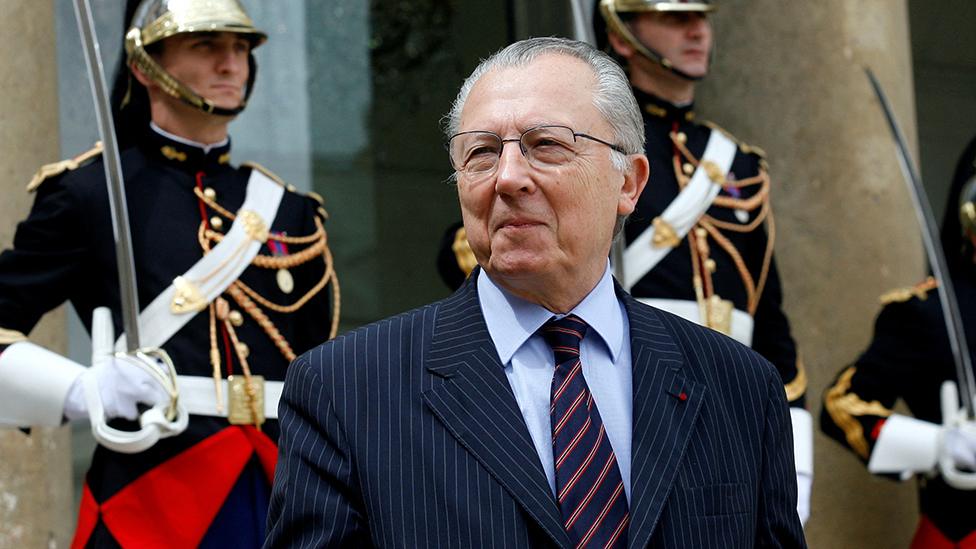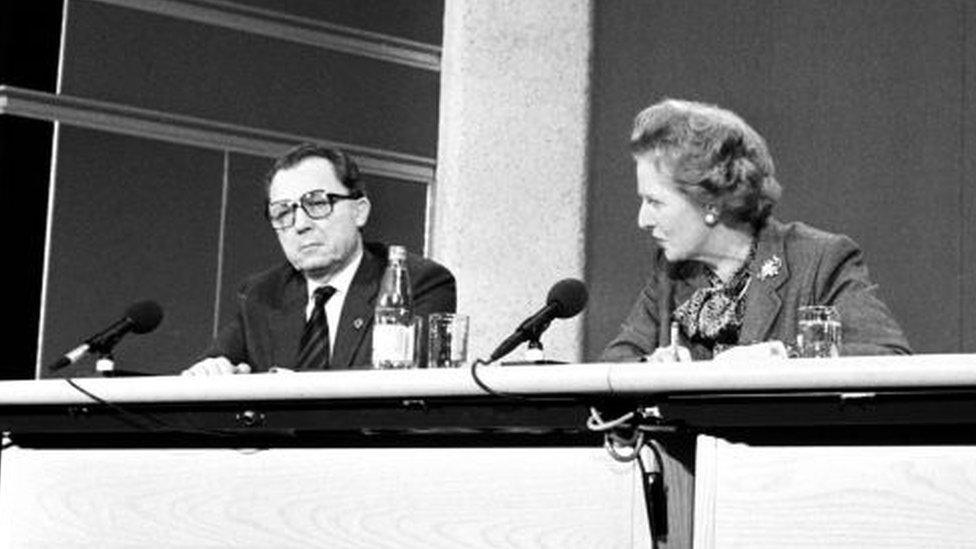Architect of modern EU Jacques Delors dies aged 98
- Published

Former European Commission President Jacques Delors - described as the architect of the modern EU - has died aged 98, his daughter says.
He helped create the single market allowing the free movement of people, goods and services within the bloc.
Serving from 1985 to 1995, Delors also laid the groundwork for the single European currency, the euro.
But for those sceptical of integration, especially in the UK, he was seen as a symbol of Brussels meddling.
A headline by British tabloid The Sun once famously shouted: "Up Yours, Delors."
Delors' daughter Martine Aubry said he had died in his sleep on Wednesday morning in his Paris home.
French President Emmanuel Macron praised Delors, external, who also served as French finance minister from 1981-84, as a "statesman with a French destiny" and "inexhaustible craftsman of our Europe".
"His commitment, his ideals and his righteousness will always inspire us," he said. "I salute his work and his memory and share the pain of his loved ones."
He served three terms as European Commission president, longer than anyone else.
Ursula von der Leyen, who currently holds the post, said he was "a visionary who made our Europe stronger"., external
European Council President Charles Michel described him as a "great Frenchman and a great European", external who had "entered history as one of the builders of our Europe".
A French Socialist, he was a firm believer in post-war integration.
As well as the single market and the euro, his tenure at the top of the EU saw the creation of the Schengen agreement for travel and the Erasmus programme for student exchanges.
But for the UK's ruling Conservative Party under Margaret Thatcher, moves towards a federal Europe were seen as anathema.
Thatcher described the 1989 Delors report calling for economic and monetary union as unacceptable, because it would wrest many economic policies from the hands of the British Parliament.
Lord Clarke of Nottingham, who as Kenneth Clarke served in Thatcher's cabinet, told BBC Radio 4's PM programme she shared Delors' vision of a single market, but suspected him of also wanting a political union, which she was against.
"The truth was that Jacques Delors and Margaret Thatcher deeply disliked each other personally, they hated each other for personal and political reasons," he added.
Former UK opposition leader Neil Kinnock told the programme he was a "very polite, calm, highly intelligent man, a problem-solver" and not a "fanatical federalist" as Thatcher tried to portray him.
On leaving his post in 1995, Delors declined to stand for the French presidency, despite a huge lead in the polls.
He remained true to his federalist ideals. More recently, he warned of the dangers of populism in Europe, calling for bold moves in the wake of Brexit.
Related topics
- Published27 December 2023
